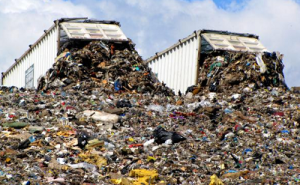
During a recent briefing to the Parliamentary Committee on Sanitation and Water Resources, Engineer Solomon Noi, Director of Waste Management at the AMA, highlighted the severity of the situation. He explained that the city previously utilized a quarry site in Nsumia, Ga West, for waste disposal. After that site was filled, operations moved to Nsawam, which was shared with the Eastern Region and is now managed privately by West Landforce. Currently, the only engineered landfill available is at Kpone, with plans underway to establish another at Ayidan in the Ga South Municipality.
Mr. Noi warned that without immediate intervention, Accra could face a significant health crisis. He noted that waste is being transported to distant sites, but these are not adequately engineered. Consequently, during rainfall, leachate from these sites can contaminate rivers and depressions, eventually making its way back into the city.
He also raised concerns about health risks stemming from improperly managed medical and sanitary waste. Waste pickers, many of whom are migrants from neighboring countries, often handle this waste and can inadvertently spread infections. Mr. Noi emphasized that hospital and healthcare waste often mixes with other waste types, and individuals who come into contact with it may reintroduce pathogens into urban areas, contributing to recurring outbreaks of diseases like cholera and typhoid.
To mitigate these public health threats, Mr. Noi recommended the construction of a modern intermediate waste treatment facility. He advocated for a state-of-the-art incineration plant capable of handling non-recyclable waste such as baby diapers, sanitary pads, and healthcare waste. Such a facility would effectively neutralize pathogens before the residual ash is transported to a landfill, thereby breaking the cycle of disease transmission.
